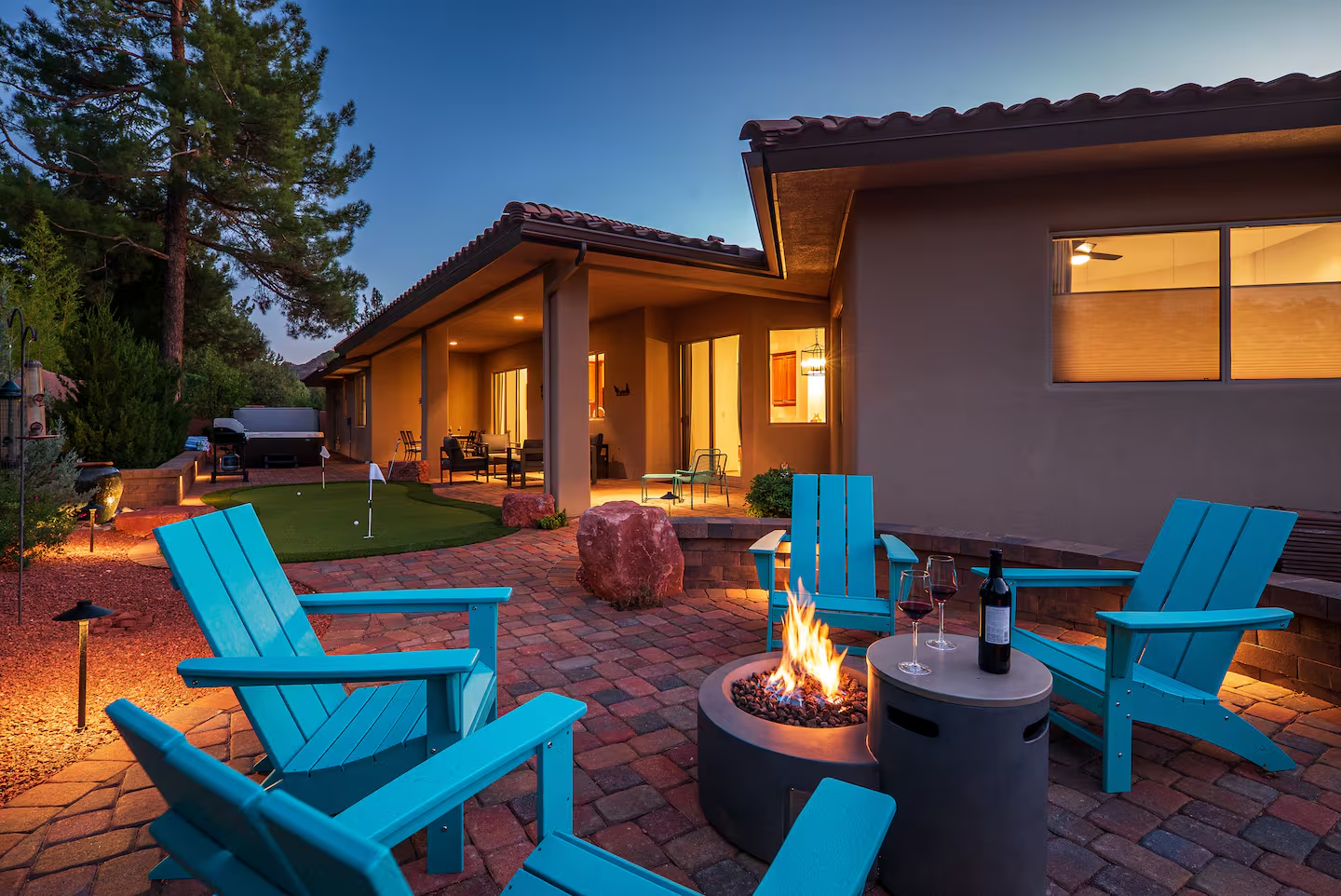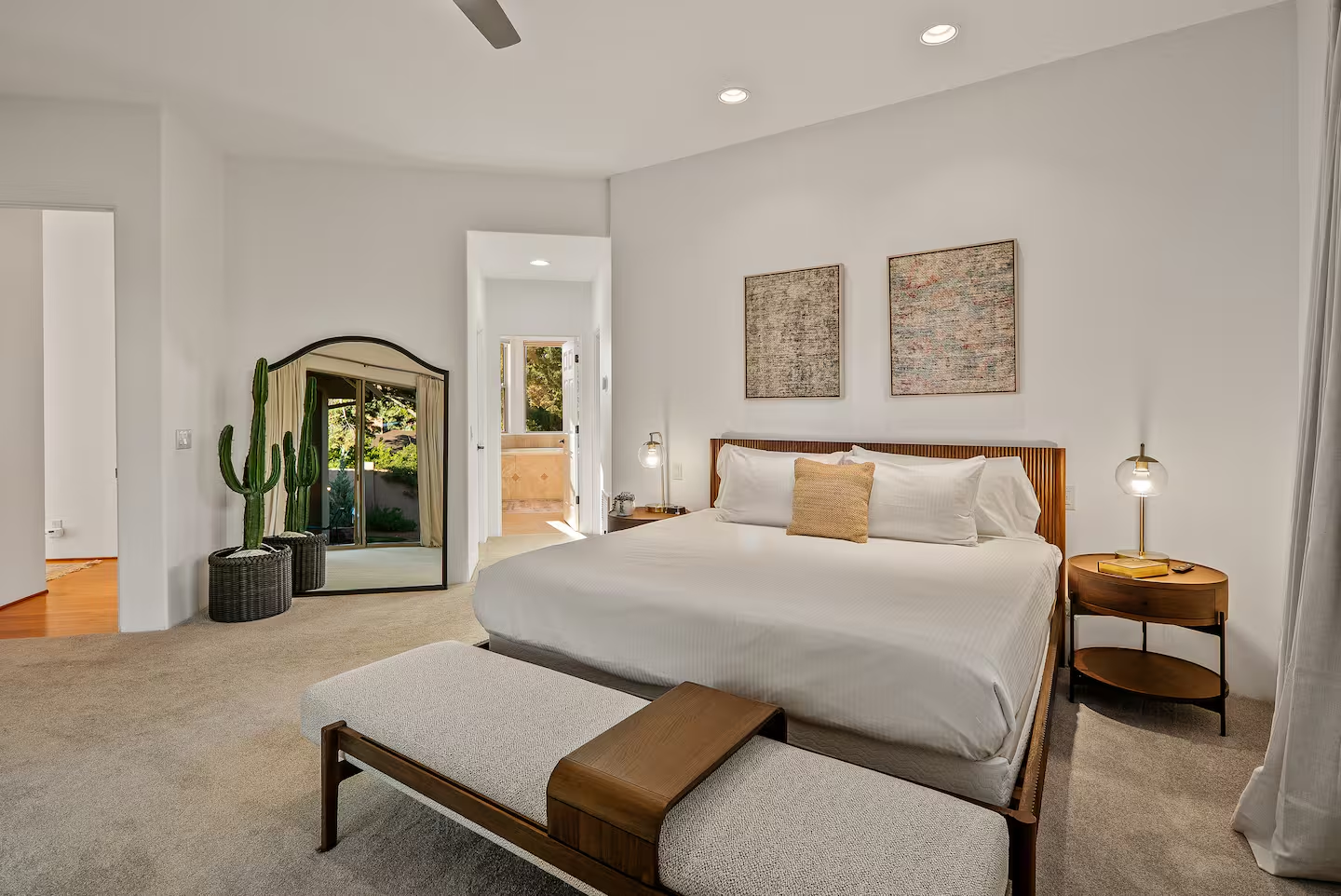AirBnb vs Long-Term Rentals: What’s the Real Difference?
- Martin Beechen
- Apr 10, 2025
- 4 min read
I’ve spent the last several years growing my real estate portfolio. Right now, I own 17 doors that are all long-term rentals, plus one short-term rental—a vacation Airbnb in Sedona, Arizona. Along the way, I’ve learned that while both can be profitable, they operate very differently. If you’re thinking about diving into rental property, here’s what I’ve learned from hands-on experience.
1. Airbnb Is a Hospitality Business
Airbnb and other short-term rentals aren't just about giving someone a place to stay—they’re about creating an experience. You’re competing with hotels and resorts, and your guests are usually people with money who are on vacation or traveling for work. They expect fast replies, clean places, and nice touches like coffee, snacks, or fun decor.
Long-term rentals, on the other hand, are more about giving someone a place to live. Your tenants might be students, families, or people moving to the area for work. They’re comparing your property to other rentals or buying a home—not to a fancy hotel. It’s less about wow-factor and more about solid, reliable housing.
2. Location Matters—But in Different Ways
Where your property is located plays a big role in success—but what makes a good location depends on the rental type.
For Airbnb, you want to be in a tourist-friendly area. Think downtown hotspots, vacation destinations, or places near airports, national parks, and events. You want lots of foot traffic, attractions, and people coming and going all year. That's why mine is in Sedona, AZ. It gets 3-4 million tourists a year.
For long-term rentals, it’s all about livability. People are looking for a place to settle down. Things like school quality, safety, grocery stores, public transportation, and commute times matter a lot more. A quiet neighborhood with solid services beats a party street near downtown. All my long-term rentals are in Spokane, WA and they do great. Spokane is a horrible AirBnb market though.
3. Rate of Return: Same Result, Different Journey
Here’s something that surprises people: even though short-term rentals can earn a lot more money in a good month, the overall return on investment is often about the same as long-term rentals.
Why? Because the expenses are also much higher. Cleaning, restocking supplies, furniture, repairs, and management all add up fast. Airbnb income might spike during busy seasons, but it can crash if you don’t get bookings. It’s boom and bust.
Long-term rentals don’t usually bring in as much monthly income, but the costs are lower and more predictable. Over the course of a year, the net profit—what you keep after everything—is often pretty similar between the two.
4. Income: Steady vs. Spiky
Long-term rentals give you stable income. You sign a lease for 6 to 12 months (or longer), and rent shows up once a month. It’s predictable, which makes it easier to plan your finances.
Short-term rentals can make more money—especially in touristy places or during peak seasons—but income goes up and down. You might be full in July and empty in January. You have to pay closer attention to pricing, availability, and marketing.
5. Workload: Low Effort vs. High Energy
Once you get a good tenant in a long-term rental, things are pretty hands-off. You’ll deal with occasional repairs, but overall, it’s set-it-and-forget-it.
Airbnb is more hands-on. Every guest stay means cleaning, laundry, restocking supplies, and answering messages. You need to fix any problems fast, because reviews matter a lot. Running a short-term rental is kind of like running a little hotel.
6. Property Fit: Not One-Size-Fits-All
Not every home works for both types. Short-term rentals do best in places people want to visit—like beach towns, mountain getaways, or busy cities. A quiet apartment in the suburbs probably won’t get many bookings on Airbnb.
Long-term rentals can succeed almost anywhere people live and work. That same quiet apartment might be perfect for someone who just wants a nice, affordable place to stay.
7. Maintenance: Frequent Touch vs. Long Gaps
With Airbnb, maintenance tends to be spread out evenly. Most guests stay less than a week, so the property is cleaned and inspected regularly. Small issues get noticed and fixed quickly, and you often have gaps between guests when it's easy to schedule repairs.
In long-term rentals, maintenance comes in waves. If the tenant doesn’t report a problem, a $50 fix can become a $500 issue—or even a $5,000 disaster. And since you’re not in the unit often, most repairs and deep cleaning happen between tenants—right when rent stops and bills start stacking up. Timing and surprises can be rough.
8. Feedback: Fast with Airbnb, Slow with Long-Term
One big difference is how quickly you hear what people think. Airbnb guests leave reviews after every stay. You’ll find out fast if something’s wrong—or if you’re doing a great job.
Long-term tenants don’t usually leave reviews, and you may not hear much unless there’s a problem. That can make it harder to improve quickly or know what to change.
Final Thoughts
There’s no one-size-fits-all answer. Airbnb can be fun and profitable, but it takes a lot more effort and attention. Long-term rentals are steadier and simpler, but may earn less in the short term.
It really depends on your goals, your time, and your property. The key is to understand the differences so you can choose the right path for you—and make the most of it.

















Comments